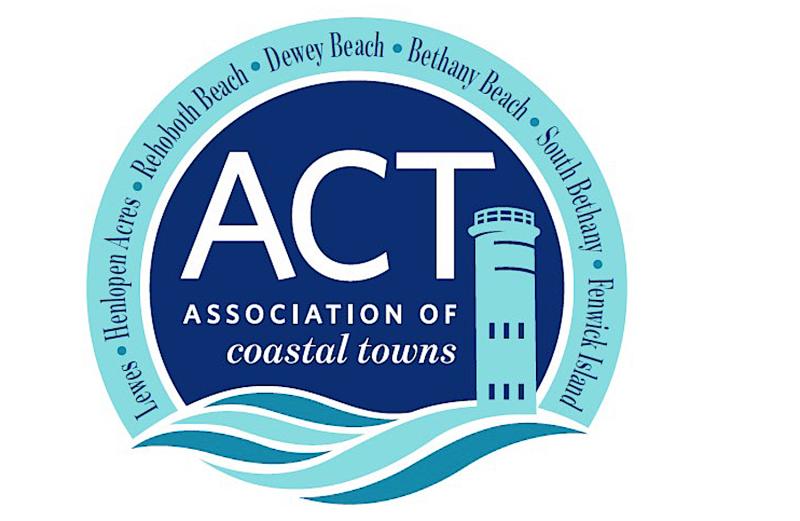In lieu of open meetings, Association of Coastal Towns dissolves
A majority of the local mayors that make up the Association of Coastal Town voted to dissolve the organization during a meeting Dec. 13.
The move came following a ruling by the Attorney General’s Office that said ACT is a public body that needed to follow Freedom of Information Act rules in accordance with open meeting requirements.
The association, which comprises the mayors of Bethany, South Bethany, Dewey, Henlopen Acres, Rehoboth, Lewes and Fenwick Island, had been meeting for years in apparent violation of FOIA, but it went unnoticed until earlier this year, when those mayors went back to their councils and constituents with an offer to consider a package of proposed community benefits from US Wind that included annual payments of $100,000 over 20 years for each town. In return, US Wind asked the towns to agree to not exercise discretionary authority to obstruct or delay development of the projects.
Ultimately, no town took the company up on its offer. Instead, the offer was tabled for discussion until after all the permits and approvals for the offshore wind project have been attained.
Soon after the tabling of the discussions, in late April, South Bethany property owner Edward E. Bintz filed a petition with the AG’s Office that said ACT failed to comply with FOIA and denied the public a role in its decision-making on matters of public interest related to US Wind’s offshore wind project. The AG’s ruling in favor of Bintz’s petition was issued a month later.
The Dec. 13 meeting was ACT’s first since the ruling.
Henlopen Acres Mayor Joni Reich said she voted to dissolve ACT because she did not feel ACT, as currently constituted and funded, was in a position to comply with the public disclosure requirements of the AG decision. Moreover, she said, she did not feel that ACT was ever intended to be a public body, because it was never the intention to be viewed as making commitments on behalf of individual town councils.
Dewey Beach Mayor Bill Stevens said he voted to dissolve the association because he believed it wasn’t a public body. He said the greatest opportunity ACT provided to him was to learn and hear how other mayors were combating income shortages, climate change, contractual obligations and town services. Personally, he said, he felt the formalized structure of ACT would have stifled the opportunity for growth.
“As stated earlier, none of the conversations at the ACT level bind the individual towns to anything,” said Stevens. “I respect the AG’s office and their decision. I do not agree, since ACT could not alter a decision or subject a town to a ‘vote,’ but they did not see it that way.”
Rehoboth Beach Mayor Stan Mills said he voted to dissolve in order to allow time to re-evaluate membership and allow more consideration as to whether a clean restart as a more formal association is preferable to maintaining the current organizational structure.
In regard to the offer from US Wind that spurred the dissolution, the mayors said it’s still hanging out there, but there’s no timeframe on making a decision.
Stevens said he would only bring it forward through a referendum.
The future for ACT is uncertain.
Mills said he supports abiding by the AG’s ruling if ACT reforms, but he is undecided at this time on the best path forward and welcomes the pause.
Stevens said he doesn’t plan on being a part of a future formalized organization.
Reich said each mayor will need to speak to their town councils and see what level of interest there is in the organization being reconstituted. Coastal challenges affect all towns, she said, and that's why it made sense to work with one another, along with other coastal organizations, such as the Delaware Center for the Inland Bays and Delaware Sea Grant.
This isn’t the first time ACT has had trouble staying together. According to Cape Gazette records, ACT was active in the 1980s and early 1990s, and while the group never formally disbanded, it became inactive around 1992. A few years later, in late 1996, ACT resumed meetings and met regularly for about a decade before, again, becoming inactive around 2010. The current version of ACT resumed meetings around 2016.
Chris Flood has been working for the Cape Gazette since early 2014. He currently covers Rehoboth Beach and Henlopen Acres, but has also covered Dewey Beach and the state government. He covers environmental stories, business stories, random stories on subjects he finds interesting and has a column called ‘Choppin’ Wood’ that runs every other week. Additionally, Chris moonlights as the company’s circulation manager, which primarily means fixing boxes during daylight hours that are jammed with coins, but sometimes means delivering papers in the middle of the night. He’s a graduate of the University of Maine and the Landing School of Boat Building & Design.
















































